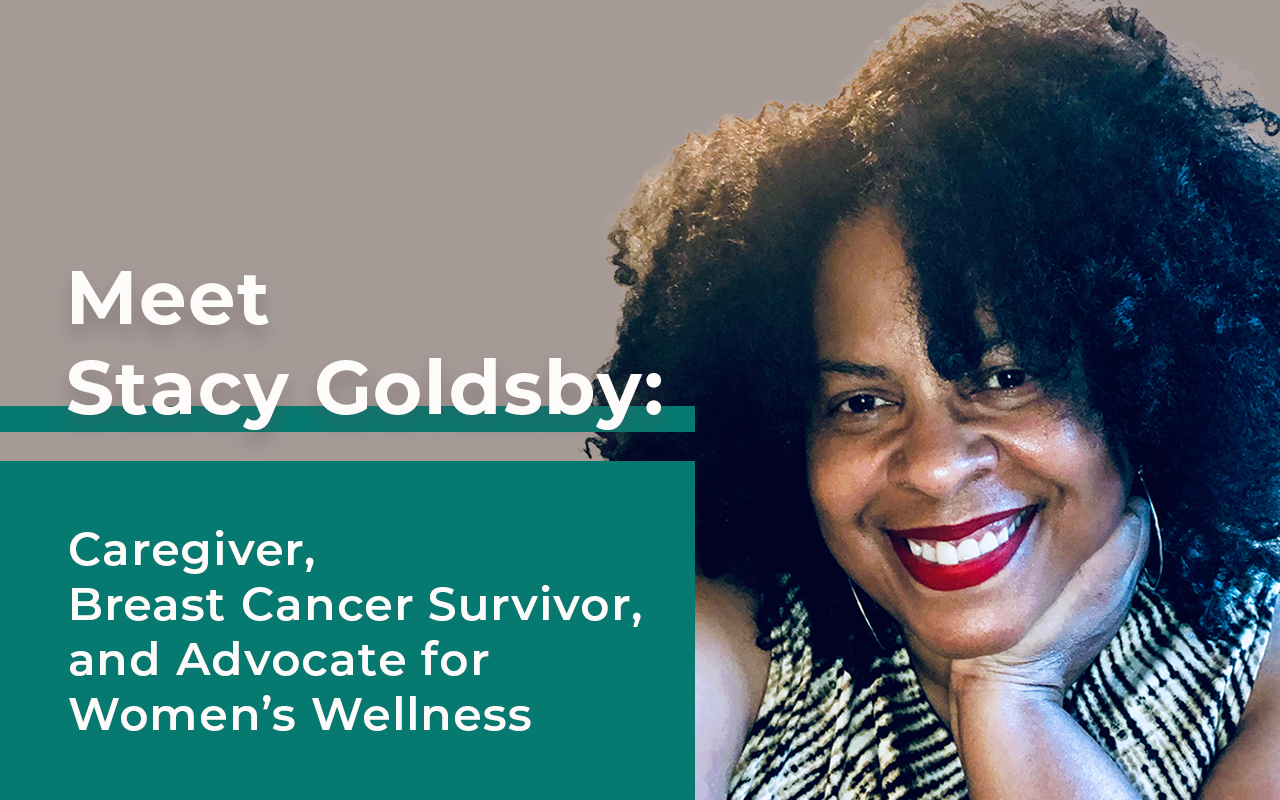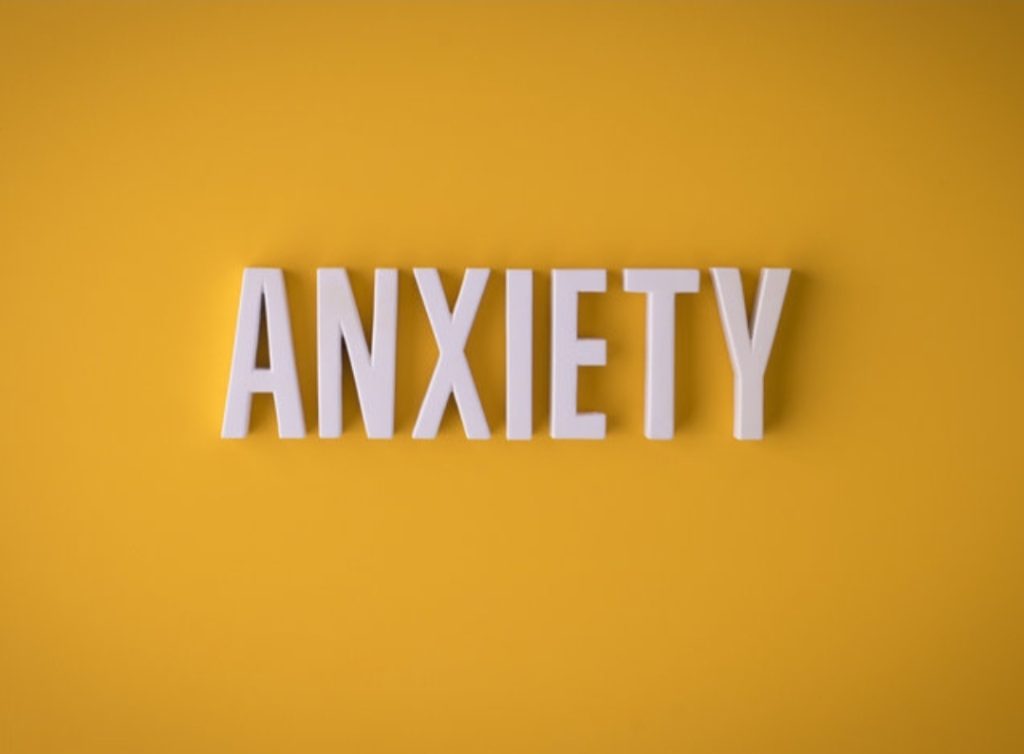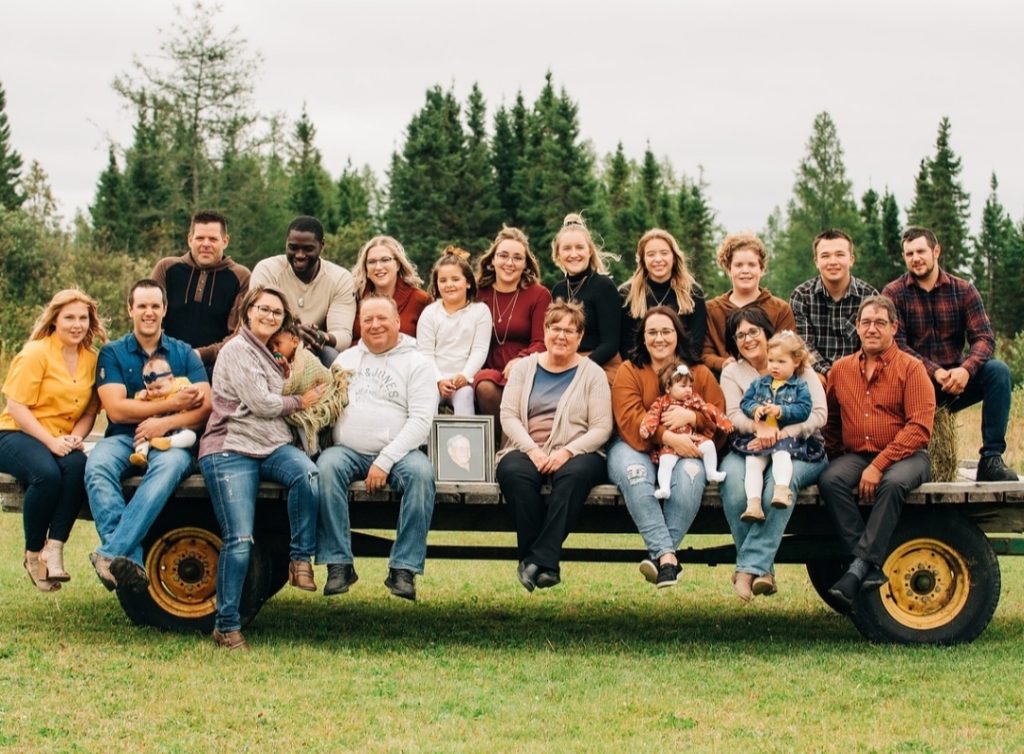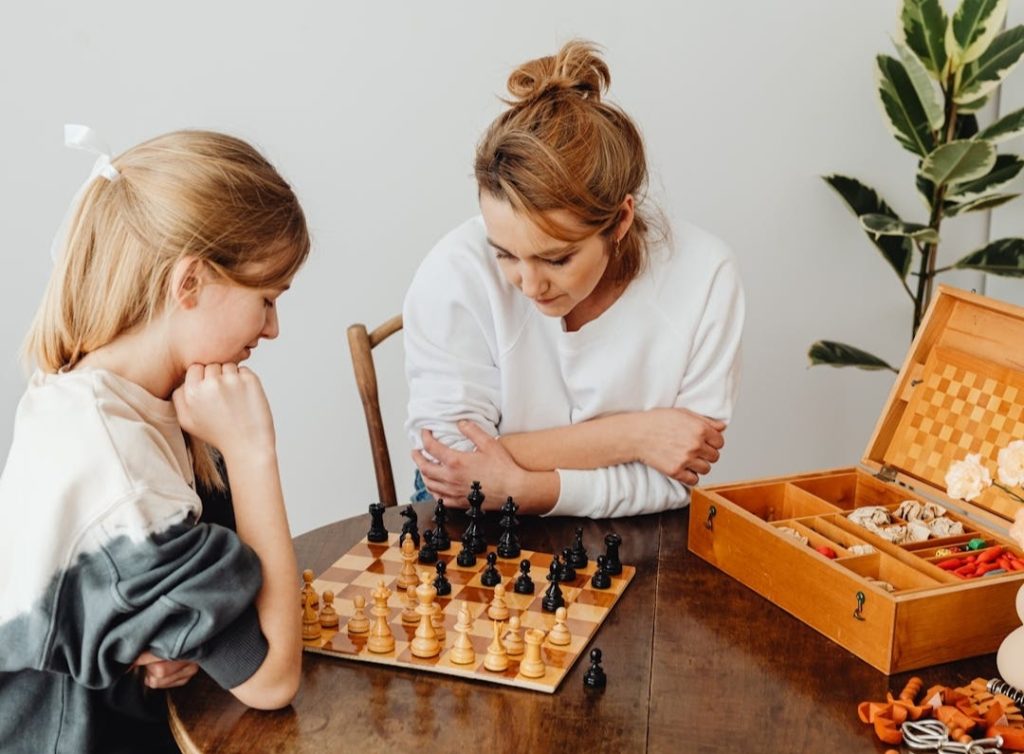For breast cancer survivor Stacy Goldsby, she has discovered the importance of assisting other women to be advocates for their own health.
Stacy, who serves in a role in county government in San Mateo, California, has a caring heart. She helps family caregivers by providing workshops, enabling those at home to get the assistance they need to care for their loved ones. She came to this position after serving as a wellness coach for a nonprofit organization and working with older adults following their discharge from a medical facility. Stacy helped to activate plans put in place by social workers, to help patients avoid “avoidable” re-admissions as well as return to a degree of independence.
Caregiving is something that Stacy has experience with, as at the age of 14, her mother was diagnosed with breast cancer. Following the loss of her grandmother at the age of 57 one-year prior, Stacy’s mother then received her diagnosis of an extremely aggressive, advanced stage of cancer. There was no history of breast cancer in the family, and at that time treatment options were limited. Stacy related, “This was back when a diagnosis of breast cancer was for many women a death sentence, and it was an uncompromising, impersonal journey.”
Sadly, at the age of 48, Stacy’s mother lost her battle with breast cancer, having experienced the metastatic spread of the disease. Her mother died when she was just 20 years old. “She never got a chance to experience my life as an adult. We never had those life events like graduation or cooking dinner for her in my first apartment,” Stacy laments.“I had a fear that I wouldn’t make it past the age of my mom’s death,” Stacy confided. “She and my grandmother were foundational women in my life, and both were taken early.” Then, at that very age of 48, Stacy herself was diagnosed with breast cancer. Because of her mother’s history, Stacy was diligent about screening mammograms, having started them at the age of 30. She never missed one. Thus, when her diagnosis of Ductal Carcinoma in Situ (DCIS) was made, it was caught at a very early stage. She had the benefit of access to treatment options as well as medical facilities with oncology experts. A researcher at heart, Stacy availed herself of all the information she could find to determine the best treatment plan.
Stacy was offered the option to have breast conservation surgery with radiation and a course of Tamoxifen for subsequent years. Because her cancer was in the left breast, she had concerns about possible heart issues in later years related to radiation. Her surgeon was discussing removing one breast, but Stacy said, “Take both breasts, let’s do it.” As she describes her state of mind at this moment, you can appreciate the thoughtful consideration that went into making this choice: “This was one of the most cogent, definitive decisions I’ve made in my life, and no one could stop me. I was as clear and ready to deal with the next steps of that decision. In life, sentinel moments like these occur where you have to make decisions, and you need to totally embrace the present; I had to be fully in this moment.”
Stacy had a double mastectomy with reconstruction, but unfortunately, she experienced complications in the skin healing of her reconstructed breasts and required wound care. When going through her prep for the surgery, Stacy saw a flyer for a post-mastectomy exercise program at the local community center. She signed up immediately, paid for the program and was client #1. She told them, “I’ll be back when my doctor clears me for exercise.”
The athletic director of the program served with a group in Seattle, Washington called Check Your Boobies. This community organization held parties to talk about breast cancer detection, screening and to make women more aware of breast health. Similar to a Tupperware party, they would send out a survivor and an educator to have a one-hour proactive, frank and fearless discussion. Educational outreach included college campuses, employee health programs, churches or community groups. Check Your Boobies then partnered with the Rivkin Center, also based out of Seattle. The focus of this organization was on breast cancer and ovarian cancer research as well as how they are often genetically related along with other reproductive/gynecological cancers. Stacy joined the Rivkin Center as a survivor facilitator, as a co-host of in-person gatherings. During the COVID pandemic, workshops were held virtually on Zoom.
When asked what her advice would be for the newly diagnosed patient, Stacy had some important recommendations:
- Understand and have your clinical team give you all of the information regarding your diagnosis, pathology report, eligibility for genetic testing. Get it in writing.
- Know what your treatment plan is and the proposed timeline.
- Bring someone with you to your appointment who can take notes, record your visits (with the doctor’s permission, of course) and take photos of the white board where notes are made.
- Have your questions prepared ahead of your doctor’s visit.
- Get the email address of your doctor to be able to ask questions or receive clarification through an online patient portal.
- Work with a social worker on your care team. A lot of resources can be found around the community, in teaching hospitals, etc.
- Your hospital doesn’t have everything; when they give you a resource sheet, work with that!
- Be mindful of your information intake; you can get easily overloaded.
- Set boundaries for those who share their experience and recognize it is theirs, not yours.
- Have a sense of humor. If you have that, it will help you to deal with anything.
- Find whatever it is you need to have an outlet.
Stacy’s outlet is in being there for others. “What helped me was to be active with the group to educate and elevate other women,” she said. One particular young woman is a medical student whose mother died of ovarian cancer at age 42. Her diagnosis was made when this young woman was in her 20s, and Stacy said she relates so well to her story. “Our lived experiences allow us to connect with others who have similar stories, but yet are different,” she said. “What I’ve dealt with has helped me to be compassionate, as I’ve been on both sides of this – as a caregiver and on the side with the loved ones receiving care.” Stacy encourages these young women as they become more involved in their own health and wellness and are making decisions about their lives. “I feel such synergy with them, and I understand their journey, as it was also mine.”
Her Nexx Chapter invites you to join our free Community where women from around the world are connecting with each other’s stories, exploring different experiences, and transforming ideas.
The Future of Connection for Women








0 Comments